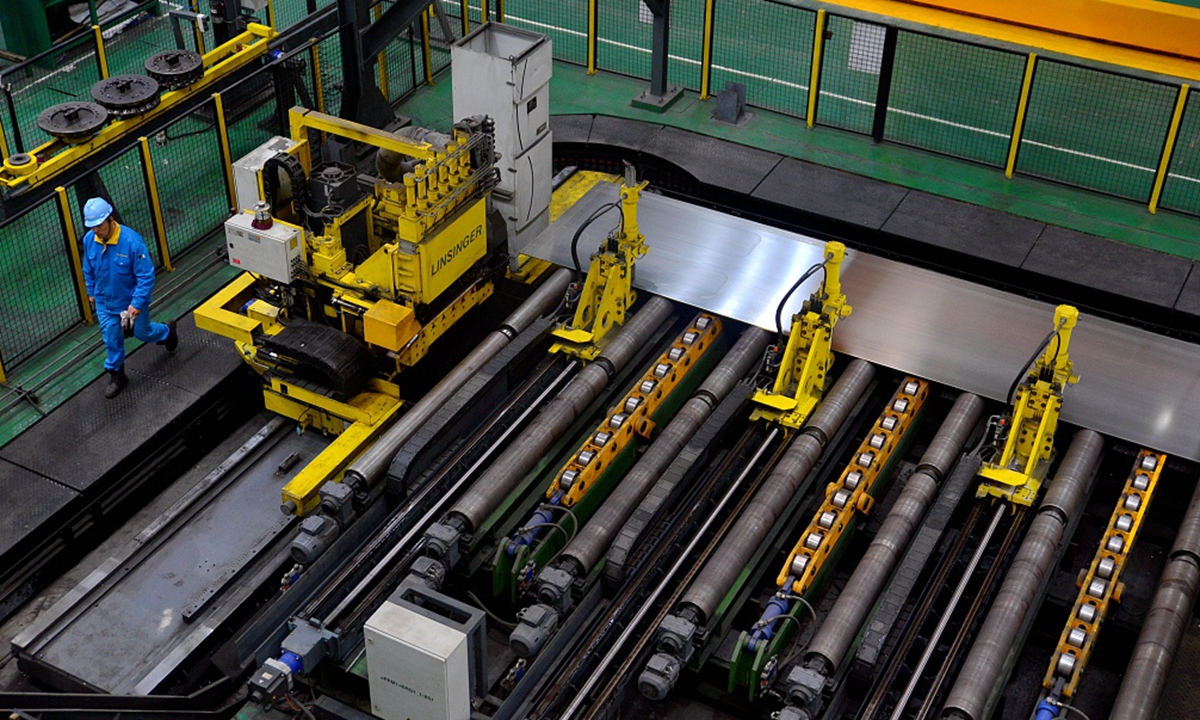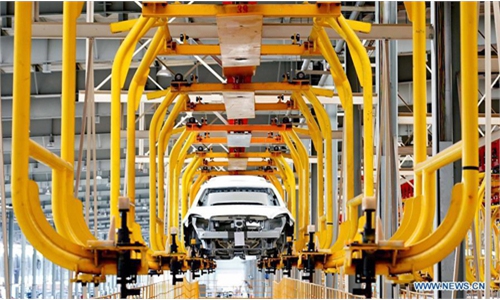
Industry PMI Photo:VCG
China's manufacturing purchasing managers' index (PMI) fell slightly for the fifth consecutive month in August, while the non-manufacturing PMI also dropped for the first time in over a year, signaling heightened downward pressure on the world's second-largest economy.
However, analysts noted that with the latest outbreaks of the COVID-19 brought under effective control and robust consumption expected in upcoming holidays, China's economic recovery will remain solid in coming months.
China's manufacturing PMI for August stood at 50.1, sliding 0.3 points from July and coming in 0.1 points below expectations, but it remained in expansion territory, according to the National Bureau of Statistics (NBS) on Tuesday.
The data showed that the expansion of the manufacturing industry had slowed, with the sub-index for new orders sliding 1.3 points into negative territory at 49.6, the NBS said.
New orders in the sectors of petroleum, coal and other fuel processing, chemical fibers, and rubber and plastics have now contracted for three consecutive months, reflecting continued declines in demand, said Zhao Qinghe, a senior analyst from the NBS.
Extreme weather and scattered COVID-19 cases in recent months disrupted raw material supplies and deliveries, and also prolonged the production cycle, which led to a decline of new orders.
The decline in the PMI was mainly due to weaker demand, which may lead to greater downward pressure on the economy, Bank of Communications economist Liu Xuezhi said in a statement sent to the Global Times on Tuesday.
"The new orders index hit its lowest level for this period since 2013, indicating a significant weakening of market demand. As export orders continue to fall, export growth is likely to slow," Liu said.
However, factory activity is likely to remain in positive territory through the end of the year, though the expansion rate will be limited by falling domestic demand, Wu Chaoming, chief economist at Chasing Securities, told the Global Times on Tuesday.
"Factors that dragged on factory activity in the summer such as floods and scattered virus cases are improving," Wu said. "In the second half of the year, consumption boosted by the holidays - the Mid-Autumn festival and National Day in China as well as Thanksgiving and Christmas in the West - will give a lift to new production orders."
Meanwhile, the non-manufacturing PMI activity index fell 5.8 points from July to 47.5, contracting for the first time since March 2020, due to the negative impact of COVID-19 on the services sector.
The index for services sector activity dropped 7.3 points from the previous month to 45.2, falling below 50 for the first time this year.
However, the services activity expectations index reached 57.3 in August, indicating that with the effective control of the epidemic and the approach of major domestic festivals in September and October, the services sector is still optimistic about a near-term recovery, Zhao said.
Wu added that the contraction in services may ease in September due to heightened consumption during two major holidays. However, it could still drag on GDP in the third quarter, when the economy might expand by 5.5-6.0 percent, slowing from 7.9 percent in the second quarter, according to Wu.

